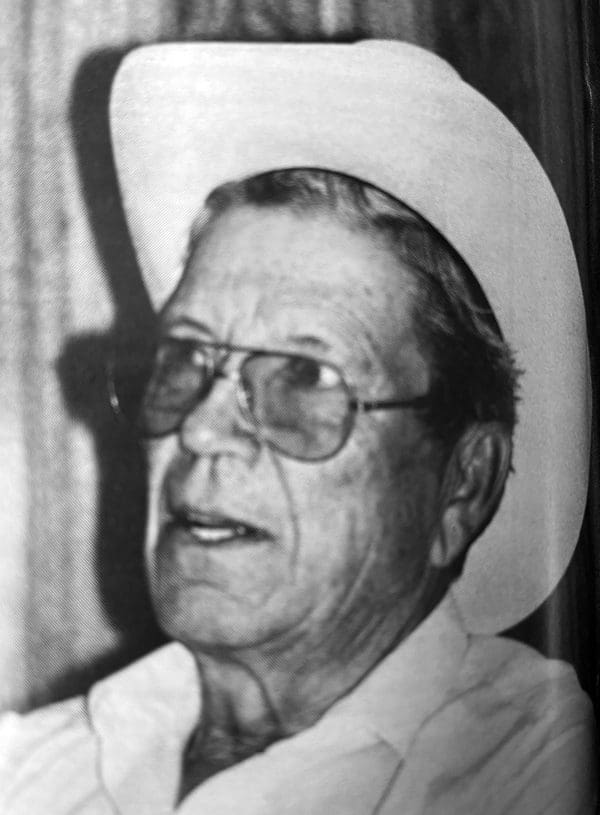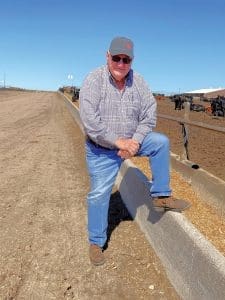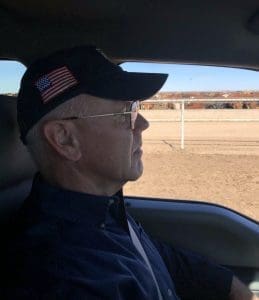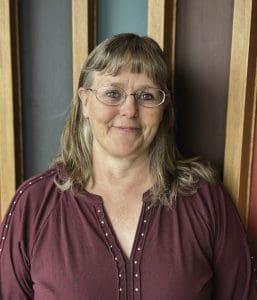By Betty Jo Gigot, Publisher
Van Brimhall moved back to Texas in 1969 and, as usual, was looking at the big picture.
Well right quick, it didn’t take me very long to figure out that of all the feedyards in west Texas and the western United States, I could put them all into three categories from a consultant’s standpoint: Those that you could work for, those that you couldn’t work for, and those that you wouldn’t work for, or that I wouldn’t work for. Fortunately there were enough in that first category to keep me going about 12 hours a day, six days a week for 14 years.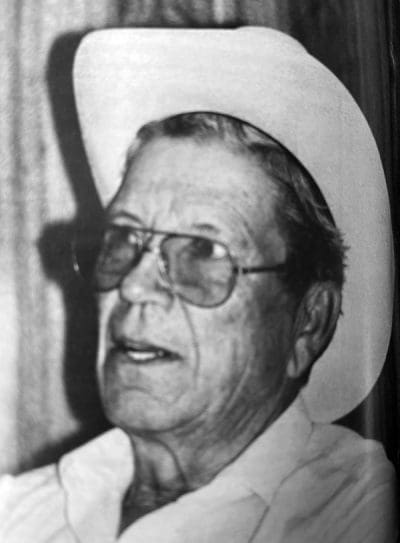
After that 14 years, Brimhall’s work schedule wore him out. He was at a place where he could use all of those little ideas he had picked up through the years on his own cattle and with his money. As he described it, he was having a blast. He called his first company “Hardly Able Cattle Company” on a lark but laughed all the way to the bank.
It built my wife two new homes and educated two children. The company was renamed RX Cattle Company and was one that lasted through the ‘73 wreck.
I’m the luckiest guy in the world. I’ve accomplished everything I’ve set out to do and I’m still in relatively good health. Every morning when I get up, put my feet on the floor and give myself a little time for my blood pressure to equalize, I mentally say to myself, ‘Now don’t do anything stupid today business-wise.’ I literally mentally repeat that.
I feel like life is a book of chapters and I have ended one and started another. It seems to be a physical necessity to approach it that way. I ask, am I over the hill? I am too old to chase women, but I can’t wait to get on with my business. I am doing things that I want to do and I don’t have to ask anyone.
Brimhall was certainly positive about the cattle business but voiced concerns about the future of large animal veterinary medicine with the new emphasis on companion animals. He believed fervently in the industry and was one of the first members of the Academy of Veterinary Consultants and a past director. He also listed one of the highlights of his career when he was appointed a director of the Texas Cattle Feeders Association (TCFA).
My greatest claim to fame is that my partner is Baxter Black.
He told about a phone call he received while the family was packing for a family vacation.
I got a phone call from a guy named Baxter Black. He said he’d just finished his freshman year of veterinary school, his mother lived in Las Cruces, he’d lost his father the year before and he’d kind of like to come back for the summer to be around his family. He wanted a job.
Brimhall told him there was work and to report to the feedyard and ask for Bob.
And sure enough, he showed up a few days later in an old junky car. He had his guitar, a bedroll, an old tin plate, a fork and a spoon. He showed up at the cowboy house – it was about unsaddling time – and even then he was a natural. He entertained the cowboys with stories and talking and getting acquainted and looking at horses and all that. All of a sudden everybody realized it was getting close to dark and they had to get home.
Baxter appropriated an old, abandoned shack down the road as his own for the summer and worked for Brimhall every summer from then on. They later became proud partners in the cattle raising business
Brimhall had a front seat in the development of Texas’ massive cattle industry. He attended the first TCFA convention in 1961 and watched the industry evolve. He watched Paul Engler build an empire and saw Ed Barrett put his company together.
I’m fascinated with the cattle industry. We’re going to keep feeding cattle. If I’m 90 years old and have a clear mind, I can hire someone to drive me by and look at them once a week, and I’m still going to be feeding cattle. Like the old boy says, ‘If I win the lottery, I’ll just keep feeding cattle until I go broke.’

